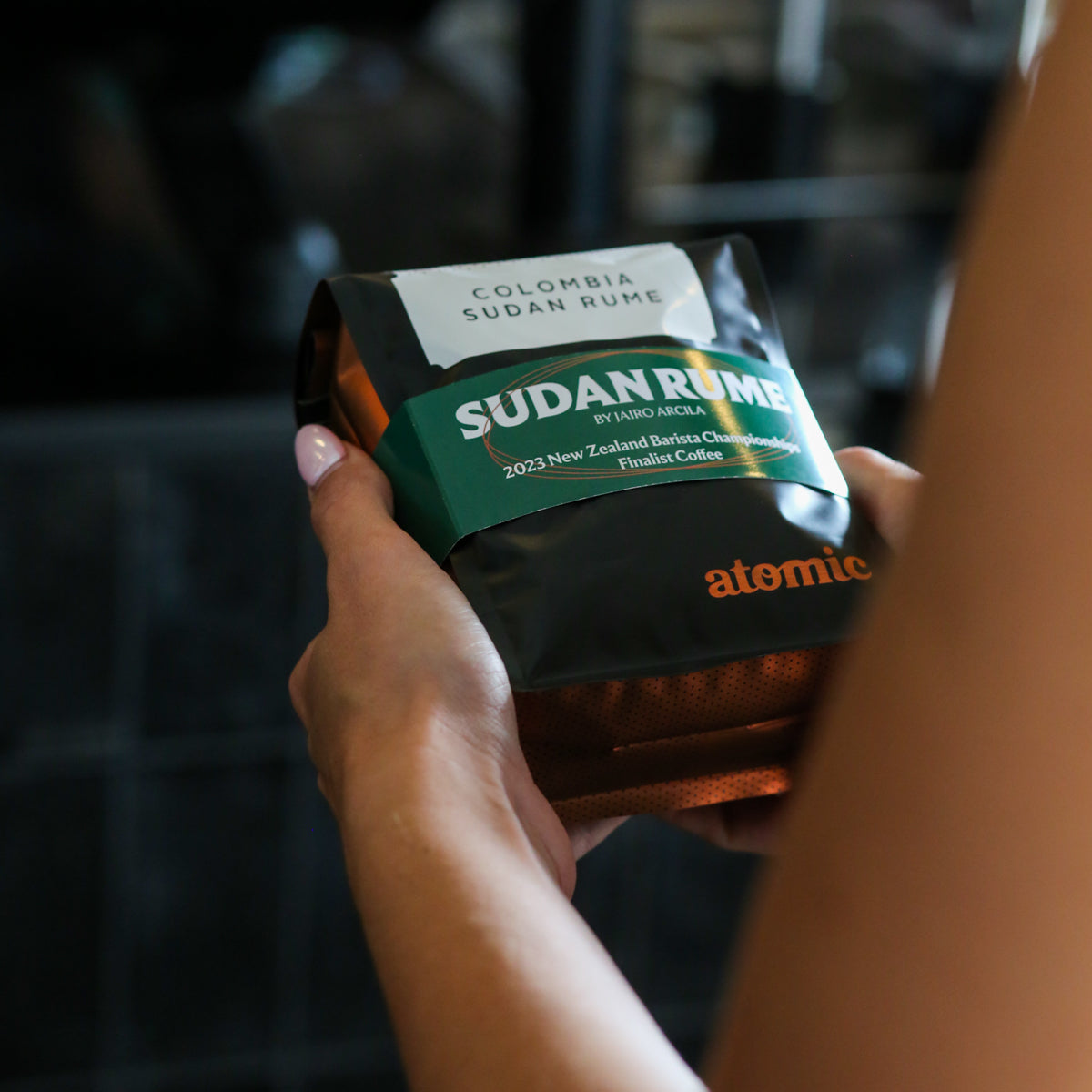
Introducing: Sudan Rume, by Jairo Arcila
March 26th, 2023: Jenny Kim, barista at our Atomic Kingsland roastery cafe, takes the third spot of the NZ Barista Championship, with a routine centered around sustainability.

Rewind a few months. Jenny's huddled around our cupping table, tasting a range of coffees in the hope to find the one she'll work with tirelessly leading up to the competition. One stands out: a Sudan Rume from Colombia, a rather rare variety in the New Zealand specialty coffee landscape. The taste is great, but something else sparks her interest. See, Jenny's always cared about sustainability, and upon researching further and exchanging with farmer Jairo Arcila, she realises that this coffee variety can be an asset to coffee growers around the world wanting to lean towards more sustainable farming practices.
Resistance to diseases
One of the biggest challenges farmers face when growing coffee is protecting their crops from the various diseases that affect both the trees and their fruits. Coffee Leaf Rust, caused by a fungus, affects the trees and can lead to a loss of production of up to 50%. Coffee Berry Disease also comes from a fungus, and causes the fruit to rot on the tree, leading to significant harvest yield losses.
These diseases can occur spontaneously and spread at rapid pace, leaving farmers with very few, highly expensive (and not environmentally-friendly) options, like fungicide spraying. Enters Sudan Rume, a heirloom variety first discovered in 1942 in the Boma Plateau of South Sudan - an ancient variety with a remarkable resistance to the diseases plaguing coffee productions around the world - a much more viable option for coffee farmers.
More consistent yield for increased financial security
The resistance of Sudan Rume translates to the assurance for producers that the effort they put into growing their plants, both physical and financial, isn't going to waste. While this variety doesn't yield as many coffee cherries per harvest as others, the relative low losses incurred by farmers thanks to the trees' resistance ensure security. The yield is more consistent, easier to predict, overall more reliable. And since Sudan Rume is known for its excellent cup quality, it guarantees higher, more consistent revenue.

Contribution to genetic diversity
Sudan Rume's qualities, both genetic and taste-related, were detected early on, and have since been used in cross-breeding programs, which aim to create stronger plants, more suited to harsher environments. The variety was used as a parent in the creation of cultivars, including many of the new F1 hybrids, such as the Centroamericano grown in Nicaragua, or the Ruiru 11 cultivated in Kenya.
Recipes


